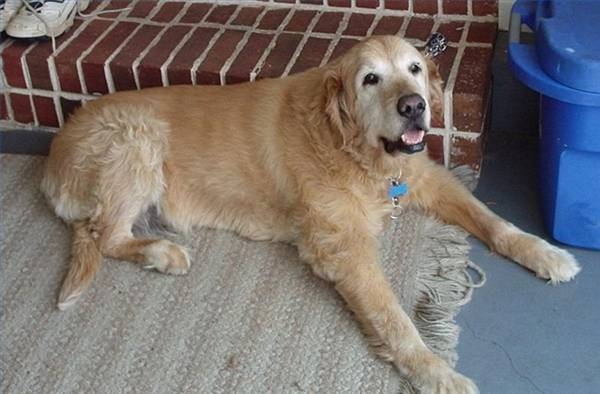The Keys to a Successful Dog Training Routine are All About the Fundamentals
For a dog trainer to be successful in training a dog for obedience there needs to be a perfect understanding between the dog trainer and his/her dog. As such, the dog trainer must have full knowledge of the dog's mental aptitude and understand its character, as well as personally have and apply essential attributes to the training.
Dogs and Their Psychology
Because of the close bond of affection between people and their dogs, many people in the past held to the misconception that the dog can and does reason.
After much study of dog psychology going back to the time of the First World War, scientists determined that dogs cannot and do not reason. Rather, dogs react to directions given to them in the form of visible or audible signs, signals or commands.
The Three Primary Senses of Dogs
The dog trainer uses different methods to attract the dog's attention through its three primary senses, being:
1)the voice is used to attract the dog's sense of HEARING;
2)the sign for its sense of SIGHT; and
3)the quality of sensitiveness or perception through FEELING.
Working with the Three Primary Senses in Your Dog Training Program
The entire program of dog training is built on these three senses. There is a fourth sense, being the sense of smell that is used for trailing. But first we must have an obedient dog, so we will use the three senses - hearing, sight and feeling - in order to build the foundation of all training which is OBEDIENCE.
Keep in mind that our objective is to appeal through the dog's three senses to train an otherwise non reasoning animal for companionship, and accomplish great training results. We can, for instance, save the dog unnecessary correction brought about by our own impatience, and save our selves the physical strain of the constant pulling up the leash by the dog. We do not want or should expect a mechanical reaction from our dog, rendering blind obedience to our every command, but we do want a real companion as close to us in understanding as man and dog can ever be. The three senses, then, operate in combination by our use of short commands issued in varying intonations; by certain important signs of the hands made in conjunction with the voice, and by appeal to the sense of feeling by encouragement or punishment.
The three mentioned senses are interdependent and they are used through the entire training of the dog. You will realize just how important the combination of the three become when you see how the dog associates:
a)with commands given by means of words, HEARING;
b)with commands given by means of signs, SEEING; and
c)with such things as petting and leash correction, FEELING.
If the dog trainer disregards even one of these senses, the trainer will find out right away why it or the dog failed in one or another lesson. In particular is the giving of signs, frequently almost unnoticeable to the amateur that will mean the success or failure of the lesson.
And What About the Dog Trainer!
The dog trainer must be concerned with three essential fundamentals - PATIENCE, CONCENTRATION and EARNESTNESS OF PURPOSE.
PATIENCE is probably the trainer's most necessary tool. Nervousness, quick temper or the slightest impatience never go hand in hand with successful training. A person subject to any one of these failings should think twice before undertaking to train a dog. It is far easier to spoil a dog than to correct it afterwards.
Equally important is the matter of CONCENTRATION. No one can train a dog and carry on a conversation at the same time... it would be like attempting to drive a car while reading a book. It cannot be done. The dog will immediately sense a trainer's divided attention, and will respond to the trainer not by implicit obedience but by a type of obedience rather more to the dog's own liking. And the trainer, not quite aware of the pupil's mistakes, will never obtain correct results. So the trainer will tend to place the blame on someone else; rather than on himself/herself. If you are going to train a dog, then, you must forget everything else going on around you when you are working on a training lesson with your dog. You must Concentrate if you are to do a really admirable job training the dog.
The third vital consideration to successful dog training is EARNESTNESS OF PURPOSE. You need to ask yourself whether you are really determined to train your dog. Is this dog under your hand to become a well behaved animal? Or is it going to be a spoiled pest, inclined to destructiveness; vicious with people, an eternal barker, constantly committing nuisance!
Dog training founded upon a thoroughly tried and approved system, the patient training of a dog by its beloved master is a worthy and satisfying work which not only benefits the dog but also reflects credit upon the dog and the dog's owner. All this can be achieved with a sacrifice of only fifteen or at most thirty minutes a day!

 About Older Dog Health Problems
About Older Dog Health Problems
About
About Older Dog Health Problems
About Older Dog Health Problems
About
 How to Gently Put Down a Dog
How to Gently Put Down a Dog
How to Ge
How to Gently Put Down a Dog
How to Gently Put Down a Dog
How to Ge
 What Kinds of Dogs Have Fewer Health Problems?
What Kinds of Dogs Have Fewer Health Problems?
What Kinds of Dogs Have Fewer Health Problems?
What Kinds of Dogs Have Fewer Health Problems?
 What to Expect in the First Year After you Adopt a Puppy
What to Expect in the First Year After you Ad
What to Expect in the First Year After you Adopt a Puppy
What to Expect in the First Year After you Ad
 What Your 16-Week-old Puppy Needs
What Your 16-Week-old Puppy Needs
What Your 16-Week-old Puppy Needs
What Your 16-Week-old Puppy Needs